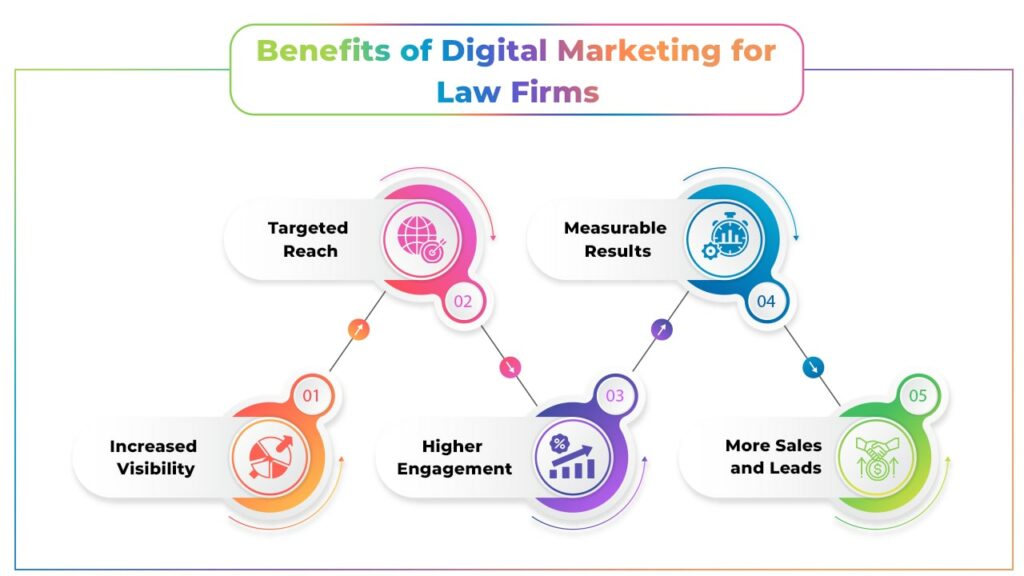Navigating the Digital Landscape: Online Marketing Strategies for Lawyers

Image Source: Google
With the digital landscape constantly evolving, lawyers must establish a strong online presence to attract clients and stay competitive. Online marketing has become an essential tool for law firms to reach a wider audience, build credibility, and drive business growth. In this article, we will explore some effective online marketing strategies that can help lawyers navigate the digital landscape successfully.
Understanding the Importance of Online Marketing for Lawyers
Online marketing for lawyers plays a crucial role in the success of today's digital age. Here are some reasons why online marketing is essential for lawyers:
Reach a Wider Audience
- With online marketing, lawyers can reach a broader audience beyond their local area.
- Digital channels allow law firms to connect with potential clients across different geographical locations.
Build Credibility and Trust
- An active online presence can help lawyers establish credibility and build trust with potential clients.
- Positive online reviews and testimonials can enhance the reputation of a law firm.
Drive Business Growth
- Effective online marketing strategies can generate leads and drive business growth for law firms.
- Increased visibility online can lead to more inquiries and conversions for legal services.
Effective Online Marketing Strategies for Lawyers
1. Search Engine Optimization (SEO)
SEO is a crucial online marketing strategy for lawyers to improve their website's visibility in search engine results. Here are some key SEO tactics for law firms:
- Optimize website content with relevant keywords related to legal services.
- Create high-quality, informative content that addresses common legal questions and issues.
- Build backlinks from reputable websites to enhance website authority.
2. Content Marketing
Content marketing is an effective way for lawyers to showcase their expertise and attract potential clients. Here are some content marketing strategies for law firms:
- Write blog posts on legal topics to provide valuable information to readers.
- Create downloadable resources such as e-books or guides on specific legal issues.
- Produce videos or webinars that educate viewers on legal matters.
3. Social Media Marketing
Social media platforms offer lawyers a valuable opportunity to engage with their audience and promote their services. Here are some tips for social media marketing for lawyers:
- Share informative legal content on platforms like LinkedIn, Twitter, and Facebook.
- Engage with followers by responding to comments and messages promptly.
- Run targeted advertising campaigns to reach specific demographics interested in legal services.
4. Email Marketing
Email marketing is a cost-effective way for lawyers to stay in touch with clients and nurture leads. Here are some email marketing strategies for law firms:
- Create a monthly newsletter featuring legal updates, case studies, and firm news.
- Send personalized emails to offer relevant legal services based on client preferences.
- Automate email campaigns to follow up with leads and encourage engagement.
Monitoring and Measuring Online Marketing Success
It's essential for lawyers to monitor and measure the effectiveness of their online marketing efforts to make informed decisions and optimize strategies. Here are some key performance indicators (KPIs) that law firms can track:
Website Traffic
- Monitor website traffic to assess the number of visitors and where they are coming from.
- Track organic search traffic to evaluate the effectiveness of SEO efforts.
Conversion Rates
- Measure conversion rates to understand how many website visitors are taking desired actions, such as contacting the firm or scheduling a consultation.
- Optimize website landing pages and call-to-action buttons to improve conversion rates.
Social Media Engagement
- Track engagement metrics on social media, such as likes, shares, and comments, to gauge audience interest.
- Analyze social media performance data to refine content strategies and audience targeting.